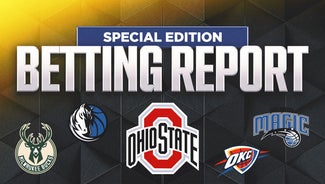
New era in Ottawa, but same mandate: Make the playoffs

A new era has begun in Ottawa, though the mandate remains the same: The Senators believe they are a playoff team after another offseason of shuffling.
Former general manager Bryan Murray is now Ottawa's senior hockey adviser and coach Dave Cameron is gone (fired) as is center Mika Zibanejad (traded). New GM Pierre Dorion and coach Guy Boucher are in charge now, and Derick Brassard is among the new arrivals.
''I still feel very confident that this is a playoff team,'' Dorion told TSN 1200 prior to the start of training camp. ''I don't want to speak too bluntly, but we feel good about what we're doing and we feel good about the coaching staff we put in.''
Indeed, there are player personnel pieces in place for the Senators and their fans to feel good about, beginning with Norris Trophy finalist Erik Karlsson. Karlsson, 26, is coming off a 2015-16 campaign in which he was a point a game player (82 points in 82 games) while averaging 28:58 of ice time. The rest of the defense includes Marc Methot, Dion Phaneuf, Cody Ceci and a host of interchangeable blue liners.
Up front, the Senators have skilled forwards in Brassard, Mark Stone, Mike Hoffman, Bobby Ryan, Kyle Turris and Jean-Gabriel Pageau.
The question is whether the organizational reconstruction will lead the Senators back to the playoffs. It is likely that Florida and Tampa Bay will have the top two spots in the Atlantic Division in some order, so that leaves the third and final divisional playoff spot up for grabs, along with the two wild card slots.
For the Senators a playoff berth, some things to watch this season:
WHO'S IN NET?
Matt O'Connor is the goaltender of the future. The present is made up of Craig Anderson (31-23-5, 2.78 goals against average, .916 save percentage, four shutouts) and Andrew Hammond (7-11-4, 2.65, .914, one shutout). Can O'Connor beat one or both for a NHL job?
WILL MACARTHUR RETURN?
Top-six winger Clarke MacArthur only played in four games last season due to post-concussion symptoms. He sustained another concussion when he was hit by teammate Patrick Sieloff during training camp.
''We know his history,'' Boucher told reporters the following day. ''It's about health first, person first. Because of the history, we're obviously going to be very cautious with the protocol.''
POWER FAILURE
Despite the presence of Karlsson, who recorded 26 of his 82 points on the power play last season, the man advantage was a disadvantage for the Senators in 2015-16. The power play was tied for 26th in the league with a 15.8 percent success rate. Enter Boucher.
''I made my name with the power play,'' Boucher told The Ottawa Sun. ''I certainly don't want to change my strengths and that's why I was hired. I want to improve the power play. That fits me.''
MAN DOWN. WAY DOWN
As bad as the power play was for the Senators in 2015-16, the penalty kill was worse. Ottawa's man down units ranked 29th in the NHL with a 75.8 percent success rate. That, in part, was why Boucher hired former NHL head coach Marc Crawford to be his associate coach.
''I wanted to get Marc Crawford to improve the penalty killing'' Boucher told The Sun. ''To focus on his strengths.''
DEFENSIVE DEPTH
The Feb. 9 nine-player blockbuster that brought Dion Phaneuf to the Canadian capital gave the Senators a left-handed shooting defenseman who can play against top competition. That's likely still the organizational thought process, even though Phaneuf only played 20 games with the Senators last season before being shut down with a hairline fracture in his right foot and injured oblique. In 71 combined games with Toronto and Ottawa last season, Phaneuf averaged 22:20 of ice time, including 2:51 on the power play and 1:50 shorthanded.

